The days of the Instagram chef have meant good business for this hill cheese brand.
◊ By Bhumika K.
NOTE: To discover the latest Organic, Artisanal & Vegan brands, buy the Organic Directory
Why should we always carry back cheese from Switzerland or Russia? Why can’t we create such stuff back home, here, in India? That was one of the driving questions that brought together Arvind Chawla and Saurabh Vinayak to set up an artisan cheese farm up in the hills in Darima village, Uttarakhand, in the region of the Kumaon Himalayas—called Darima Farms.
Vinayak is from Uttarakhand and his mainstay remains real estate and designing dream homes in the hills for celebrities and the well-heeled. Chawla is an out-and-out Dilliwala.

Saurabh Vinayak, Co Founder, Darima Farms
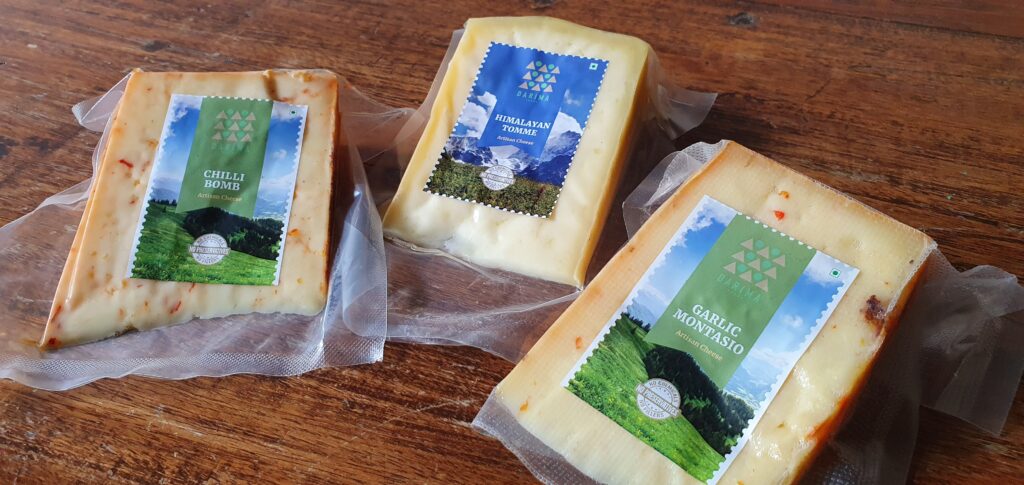
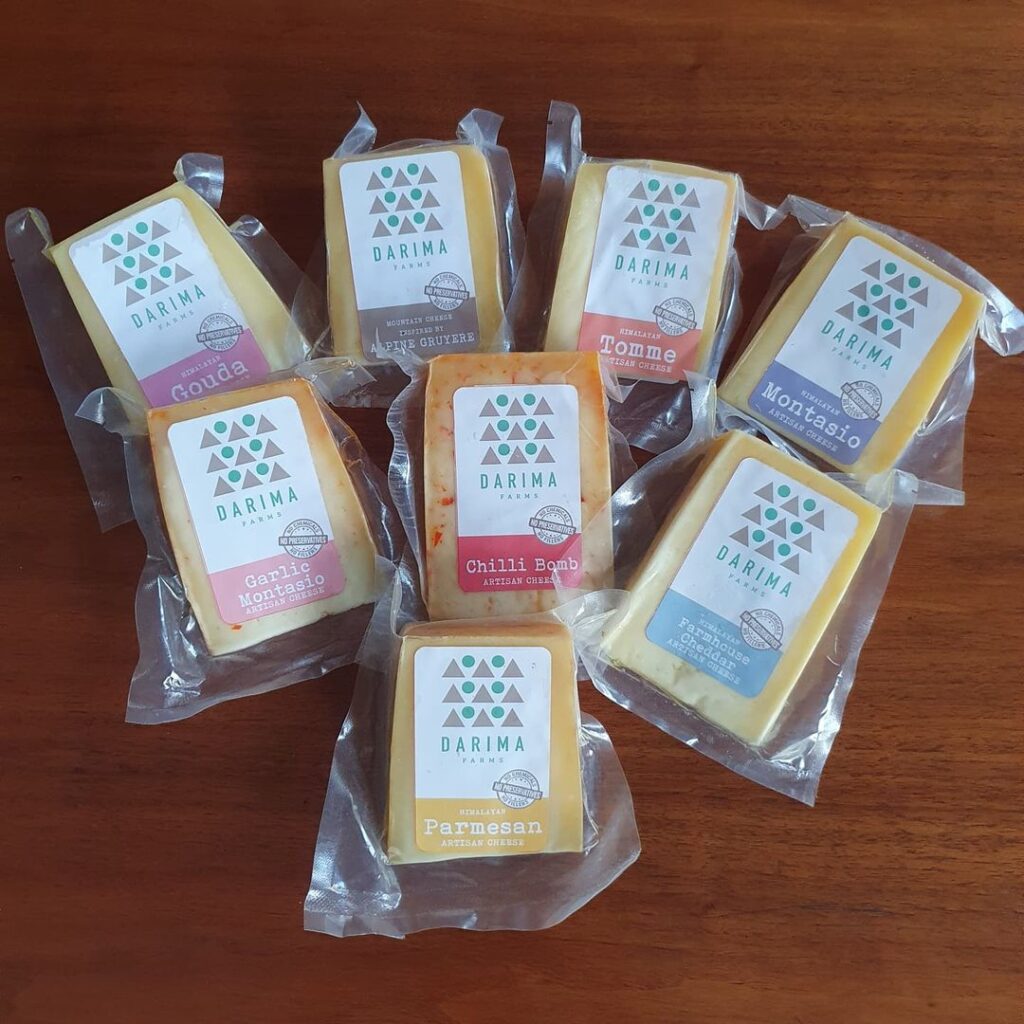
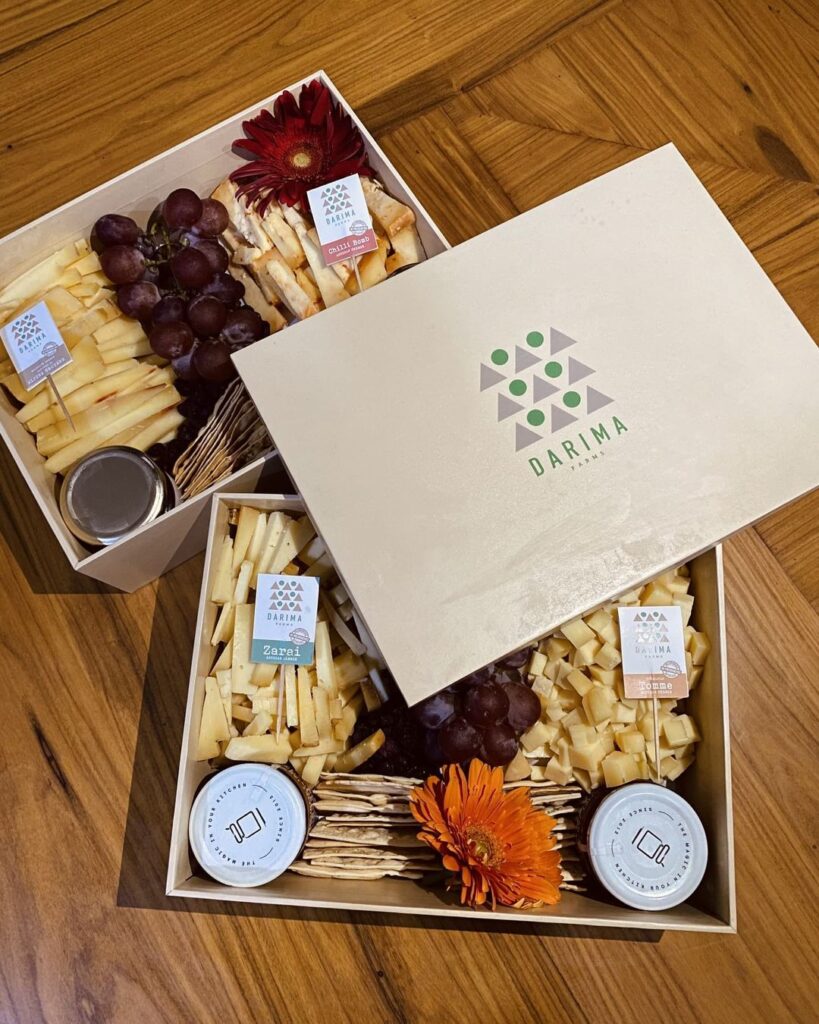
Darima Farms’ latest offering – the Graze Box – a cheese board in a box
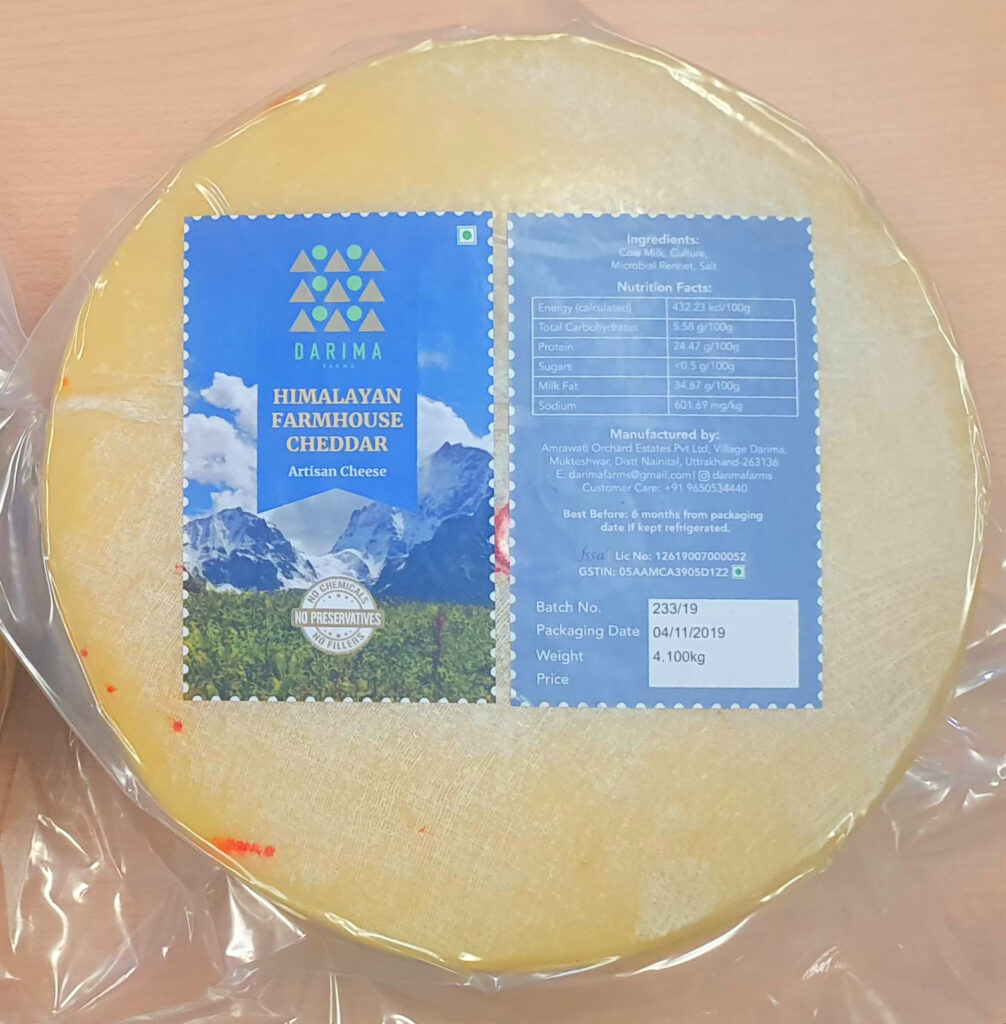
Cheese wheels are also on offer upon request
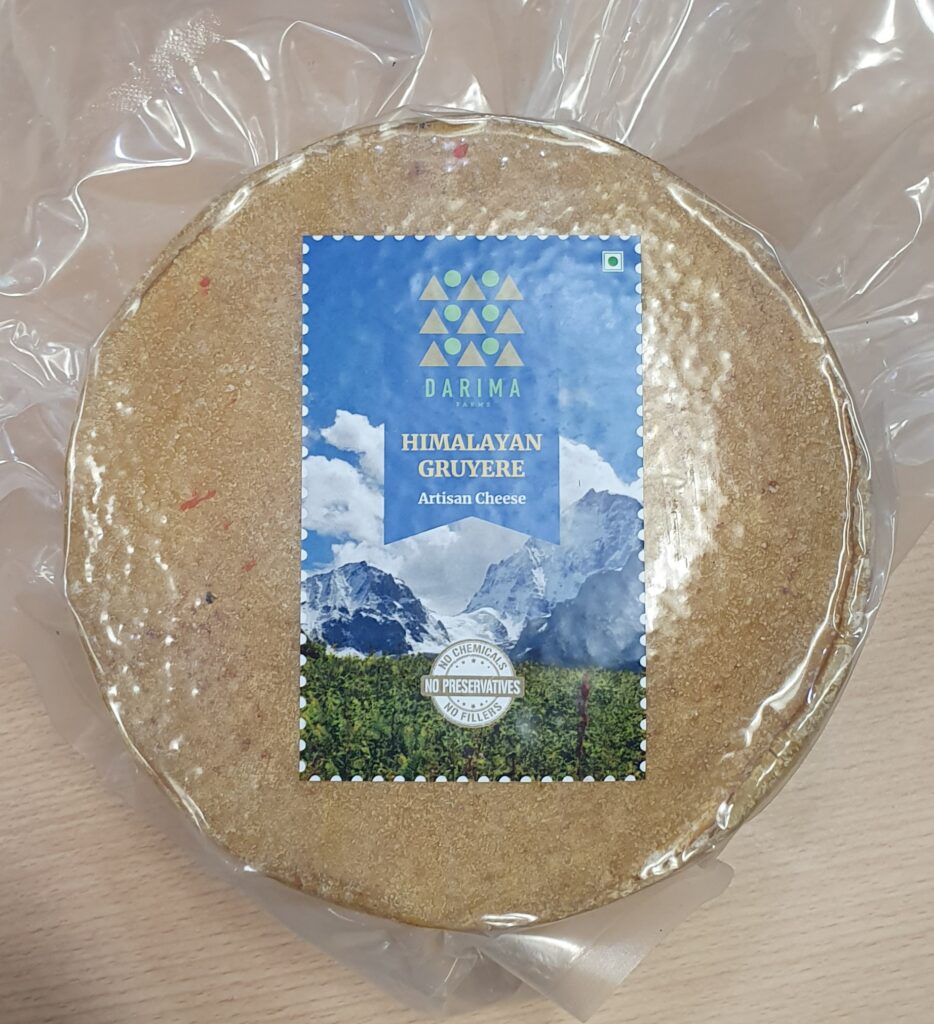
This is a passion venture of two friends—a thought of “doing something for the hills” that started over a cup of coffee.
Why pick on cheese? “India is the No.2 dairy producer in the world. Cheese increases the longevity of milk and is nutritious. We wanted to create a social enterprise around it, whereby we can bring change in a small way,” says Chawla.
Technically, they set up shop in 2016. It took two years of experimenting, starting their own dairy of desi cows at first (but later moved on to an aggregation model), learning and burning their fingers to get to the point where they were ready for the market. “We are now a natural cheese company. We don’t add anything beyond the milk, salt and natural vegetarian culture – microbial rennet.”
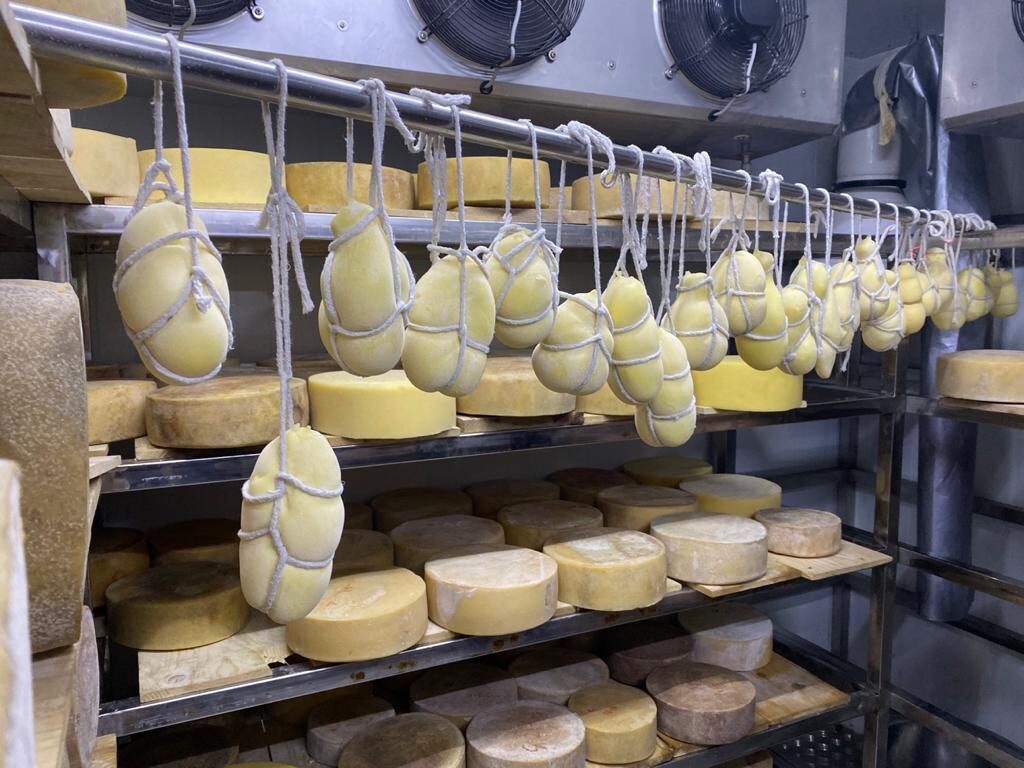
Darima’s cheese cave in Darima, Kumaon
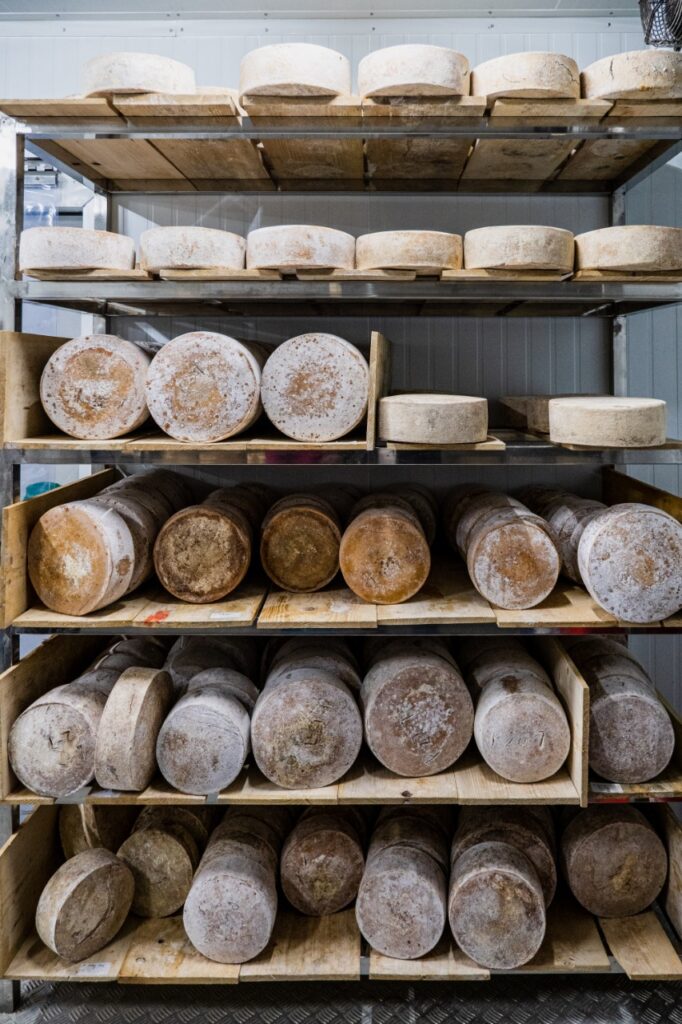
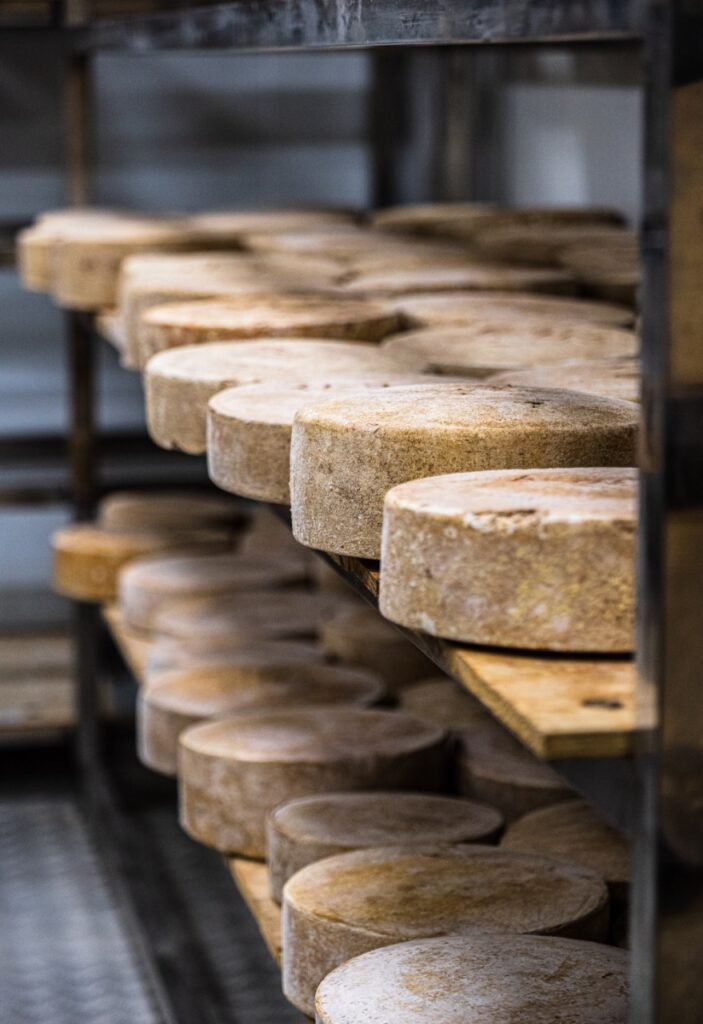
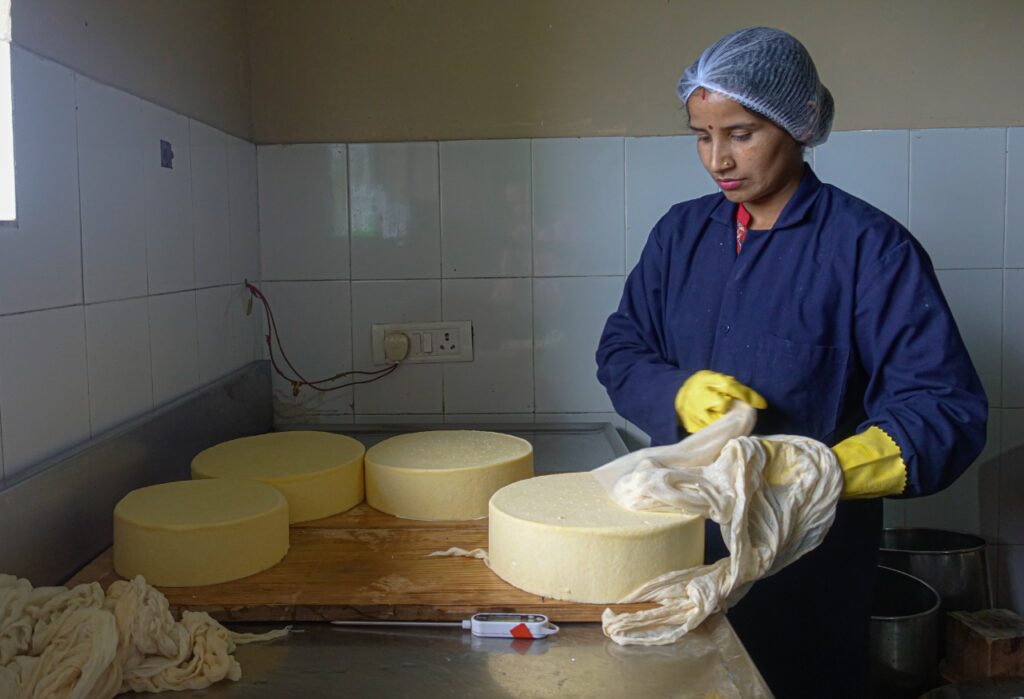
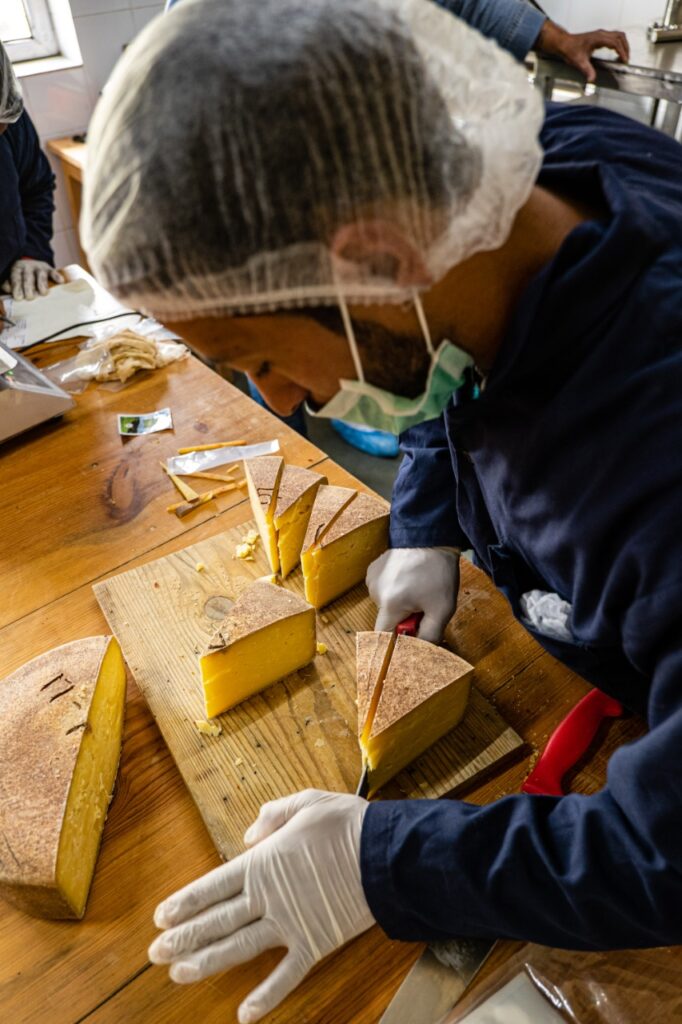
Darima Farms is now a conscious sourcer of milk from single-cow households spread over 11 villages in the hills. “We source about 800 litres of milk every day and produce around 80 kilograms of cheese from it per day,” informs Chawla. People selling milk to them have now started making twice the money they would, selling to the government cooperative.
Today, Darima produces 8 varieties of hard and semi hard cheeses, including the Himalayan Gouda and Montasio. We have also attempted an Indian variant of the Parmesan, which is now gaining traction.” There are two other local cheese varieties they have created – one with chillies (called Chilli Bomb) and another with Uttarakhandi spices.
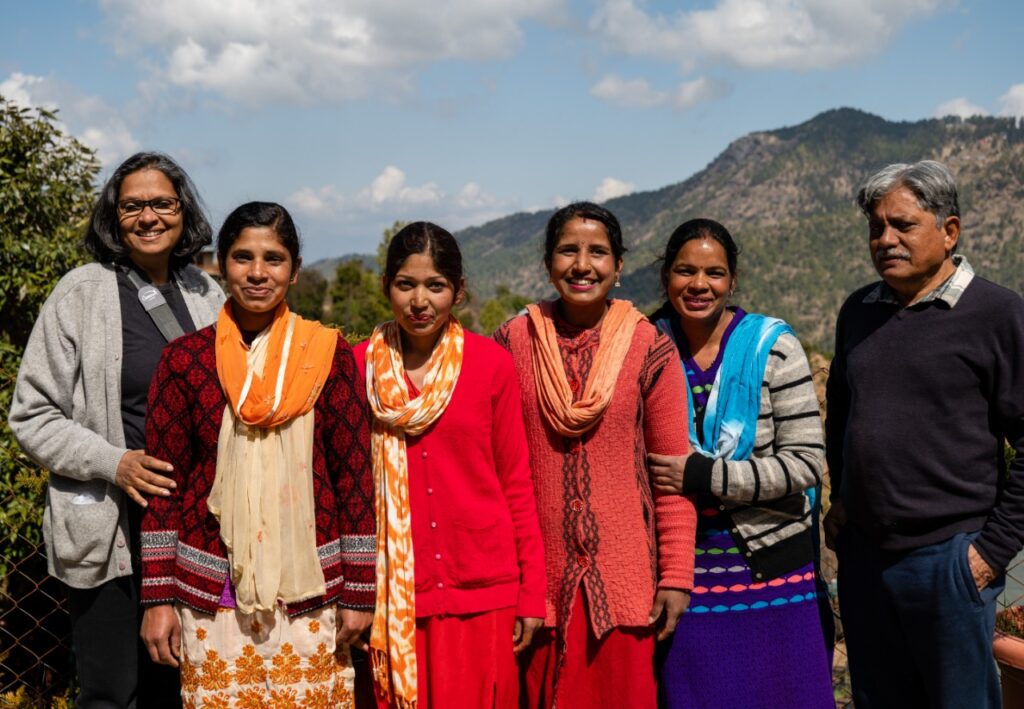
The cheesemakers of Darima Farms
While their initial market was the HoReca segment, Covid19 sent a shock through their system and suddenly 80% of their sales became B2C. “Covid was the best thing to have happened to us,” declares Arvind, “Because everyone wanted to be a home Instagram chef!”
The remaining 20% of sales comes from hotels, backed by chefs who believe in their products. Their sales now stand at 24 tonnes a year and their annual revenue is at Rs 2.5 crore. “Our vision for the future is to produce 10 tonnes a month,” adds Arvind. They have added another 20 to 30 non-cheese products, like honey, ghee, red rice, cinnamon-flavoured apple jam, etc, that will soon be introduced in the market.
Their cheese sells for an average of Rs 2,000 a kilogram, (which is typically 30% cheaper than imported cheese). The duo is working to bring the price down further. In the NCR region, they have a WhatsApp delivery broadcast for 1,000 homes; orders are placed on WhatsApp. Some farm-to-home outfits also stock their cheese, as do popular retailers in other parts of the country.


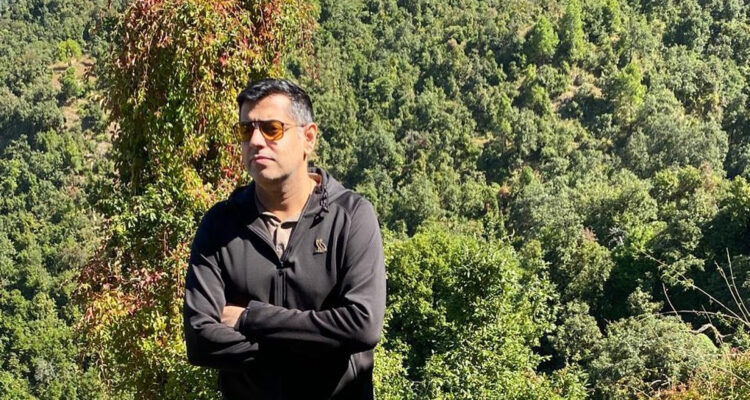
Leave a Reply